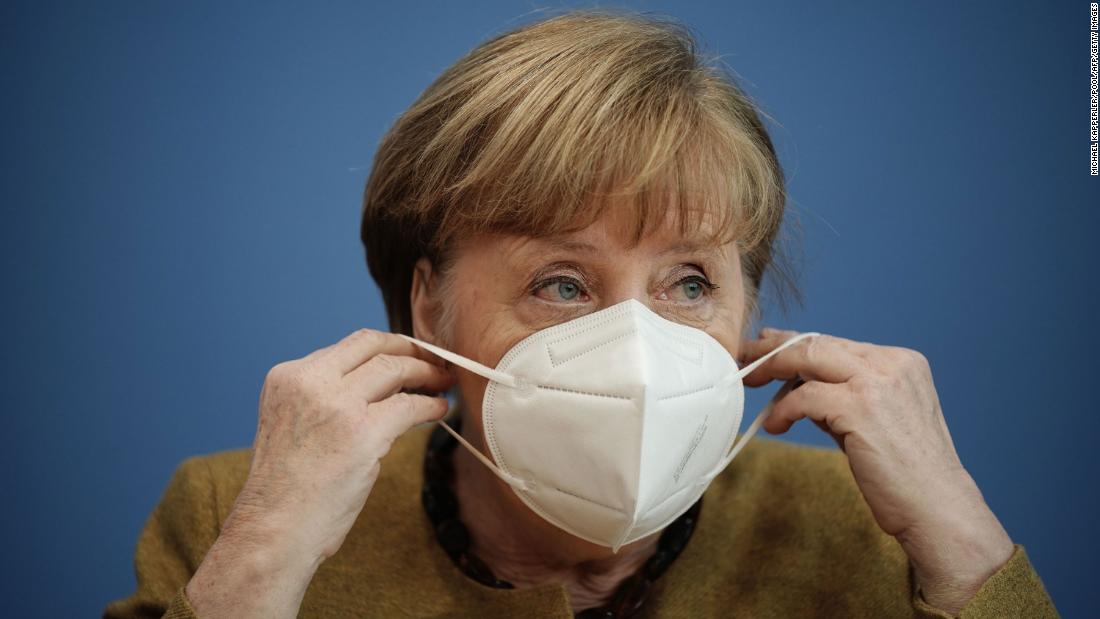
“So we have to act sensibly and carefully so that a third wave does not necessitate a new full shutdown across Germany.”
Much of Europe is recording cases of newer Covid-19 variants, particularly the ones that first showed up in the UK and South Africa. Both are believed to spread faster than previous variants.
In Germany’s staggered approach to reopening, hairdressers will resume operations on March 1, while most other businesses should remain closed until March 7.
According to the Robert Koch Institute, the country’s national health authority, there are currently about 61.7 cases of Covid-19 per 100,000 people in Germany. Merkel has said the goal is to reduce that number of incidents to 35 per 100,000 in order to reopen the economy in a meaningful way.
Merkel defended the states’ decisions to reopen schools, saying that districts that reached the rate of 35 in 100,000 could do so without affecting other areas.
She added that testing would be rolled out widely in line with the country’s staggered reopening.
“An intelligent opening strategy is inextricably linked to comprehensive rapid tests, like free tests, as it were,” Merkel added. “I can’t say exactly how long it will take to install such a system. But it will be in March.”
Germany has managed to slow down the Covid-19 contamination rate through the blockage, including the closure of its borders with Austria and the Czech Republic. Czech health authorities now confirm record cases of daily infection, with the death toll rising to one of the world’s worst per capita, putting hospitals on the brink of collapse.
Germany, like many other countries of the European Union, is struggling to roll out a widespread vaccination program that would contribute to a faster reopening of its economy. The European Union distributes its vaccines equally among its 27 member states, in proportion to their population, but has received tens of millions of doses less than expected.
The European Parliament is expected to grill pharmaceutical companies at a public hearing on Thursday and demand answers about failure to deliver the agreed numbers of vaccine doses.
Austrian Chancellor Sebastian Kurz has warned that restrictions in his country are starting to lose their impact, underscoring the urgent need to strengthen the bloc’s vaccine stocks.
“The objective situation in Austria was simply that the lockdown had lost its effect after six weeks. People have steadfastly stuck to it, there have been more and more shifts to the private sector, and a lockdown in which of course no one participates. little point, ‘he told the German newspaper Bild.
He will be urging the European Union on Thursday to introduce a “green passport” system so that people who have been vaccinated can travel within the bloc.
While Germany and several other European countries are thinking about how to lift their restrictions, France – which opposed a new national lockdown when new variants emerged – is imposing new ones. President Emmanuel Macron is expected to announce new measures on Thursday.
The French Riviera has been placed under weekend lockdowns for the next two weeks, while the region around the northern port city of Dunkirk will begin weekend lockdowns on Saturday.